Abstract
A close relative of 55 severely head injured adults (post-traumatic amnesia greater than or equal to 2 days) was interviewed 3, 6 and 12 months after injury to obtain information about psychosocial changes in the patient. The problems most frequently reported were emotional disturbances, poor memory, and subjective symptoms, with physical disability much less common. The amount of stress experienced by relatives did not diminish between 3 and 12 months, and was related to the incidence of mental and behavioural changes in the patient. The question of whether or not compensation was being claimed did not appear to influence the outcome.
Full text
PDF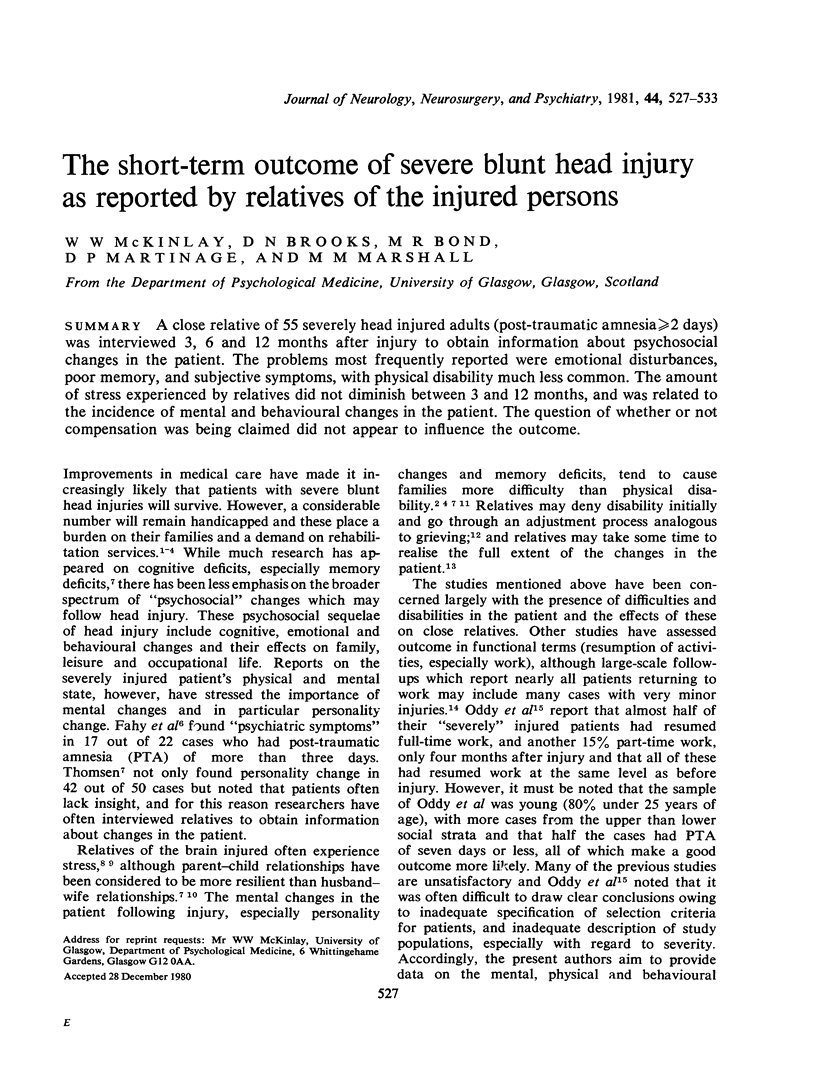
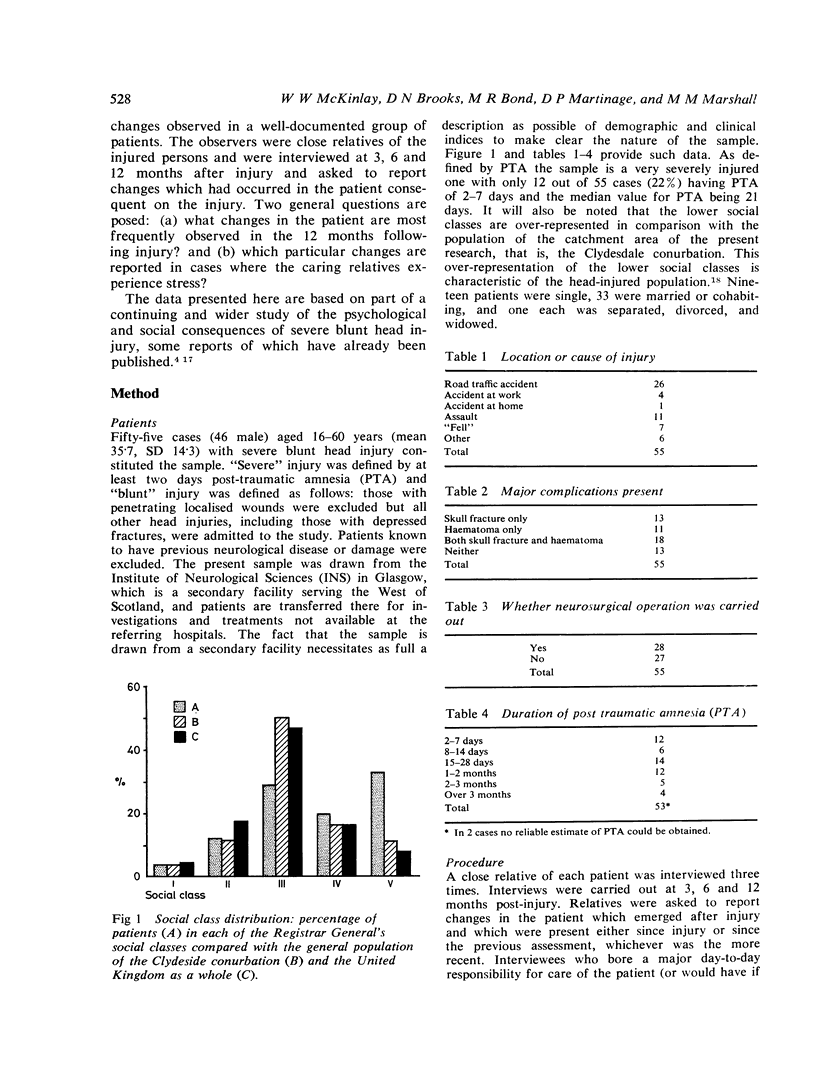
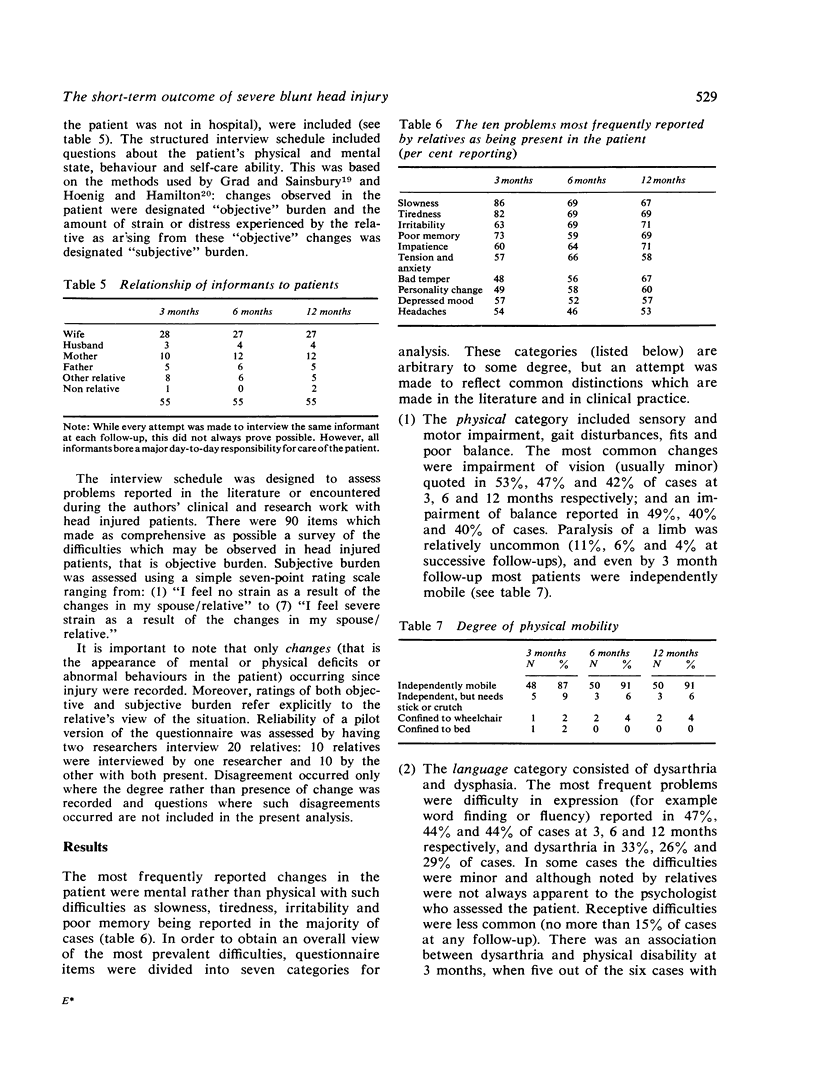
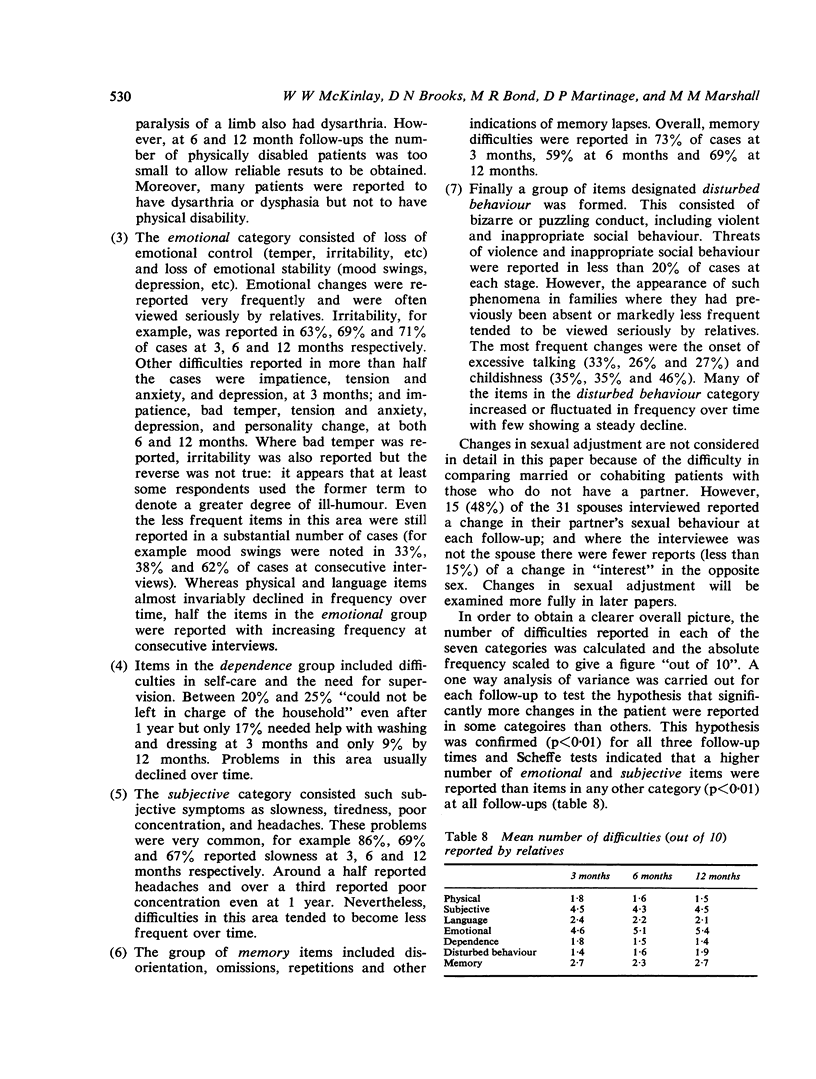
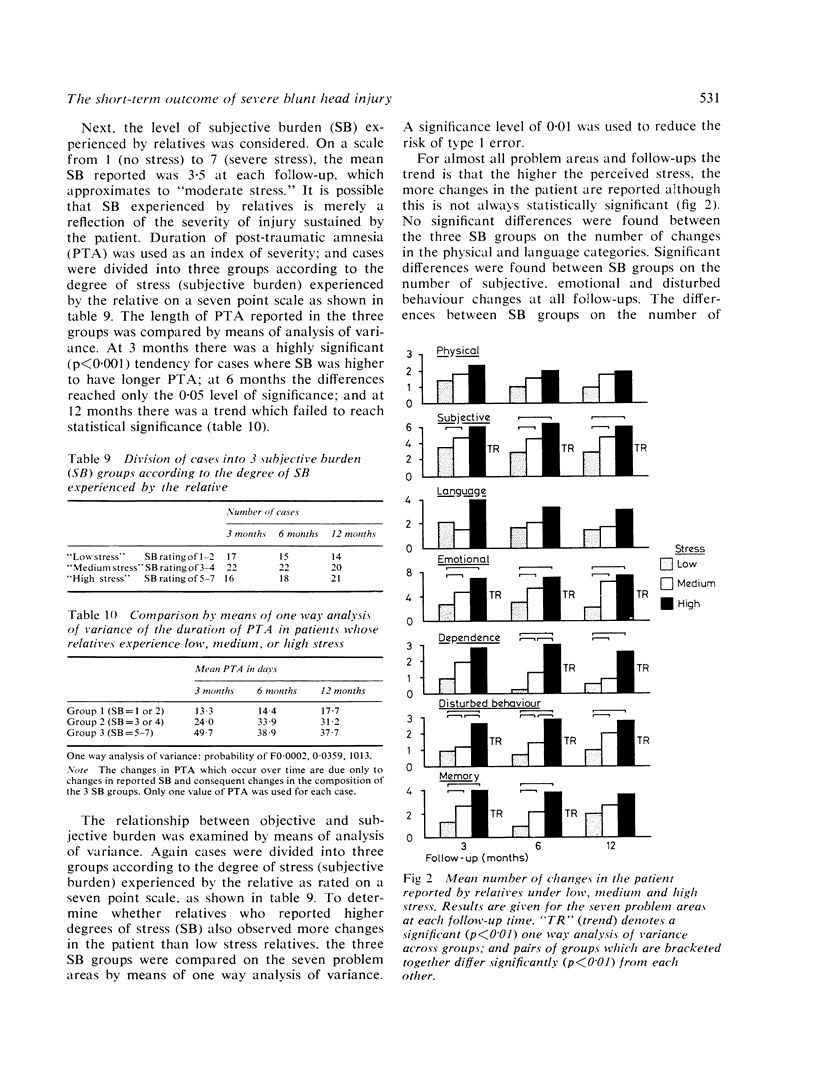
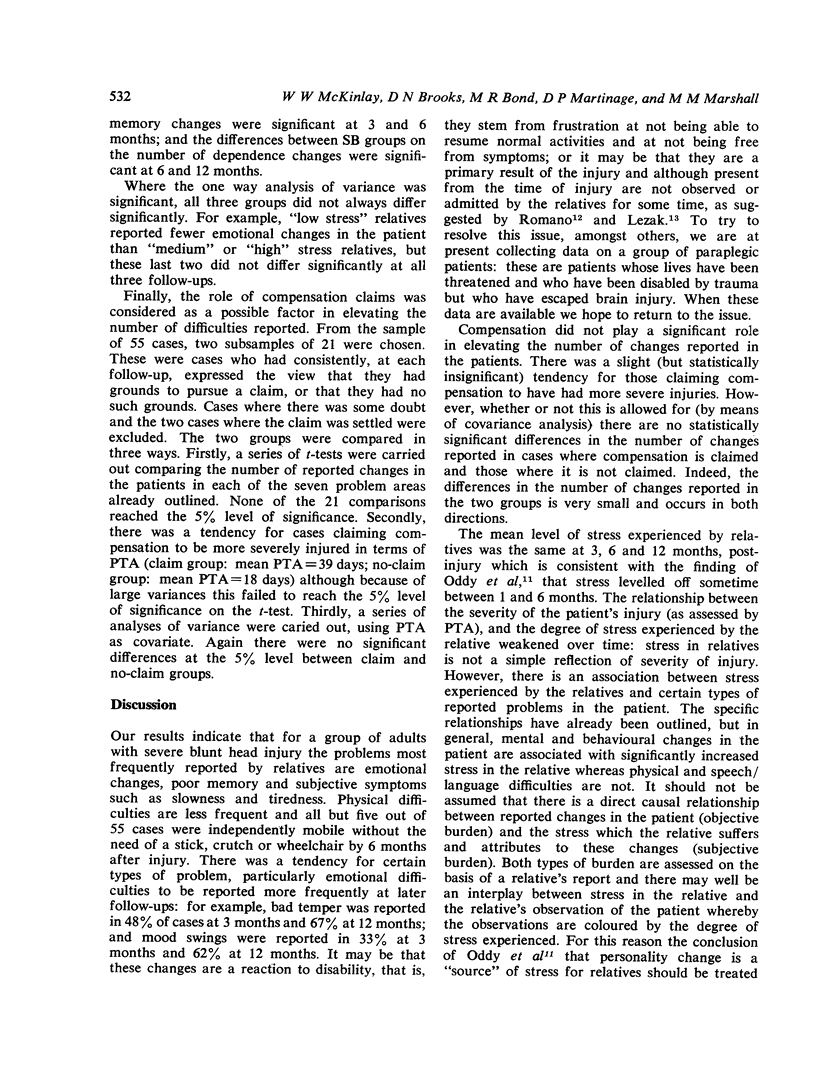
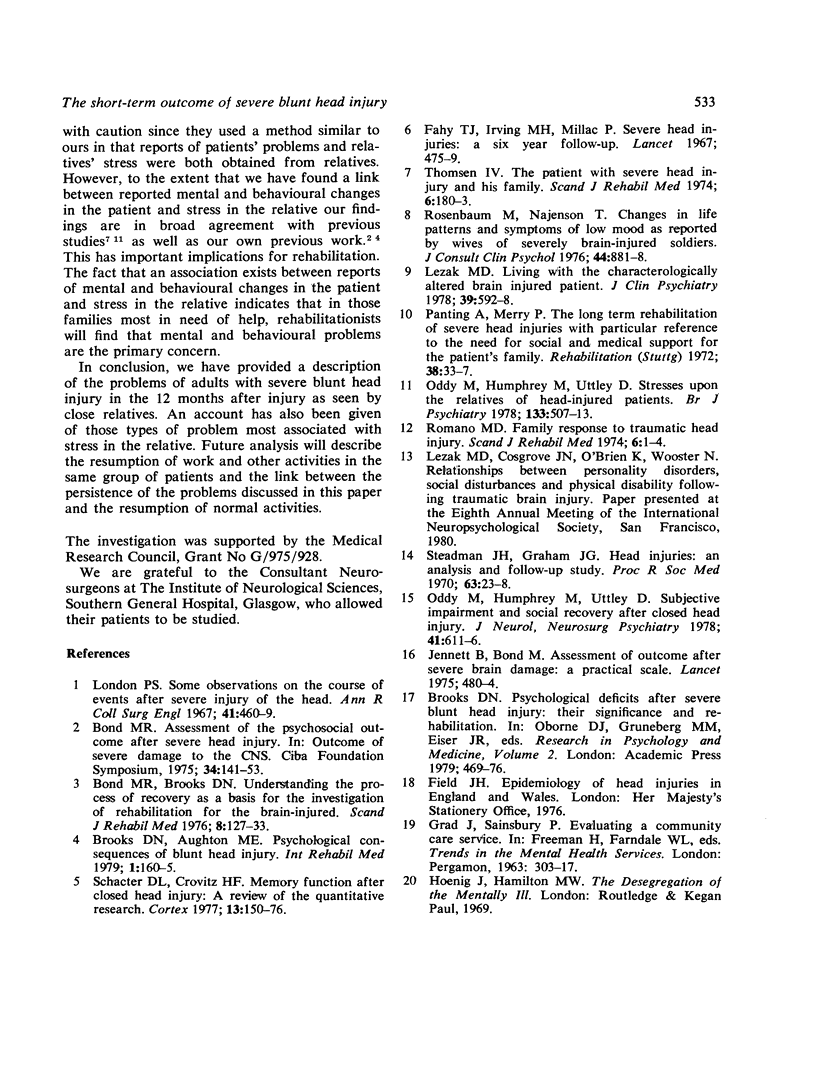
Selected References
These references are in PubMed. This may not be the complete list of references from this article.
- Bond M. R. Assessment of the psychosocial outcome after severe head injury. Ciba Found Symp. 1975;(34):141–157. doi: 10.1002/9780470720165.ch9. [DOI] [PubMed] [Google Scholar]
- Brooks D. N., Aughton M. E. Psychological consequences of blunt head injury. Int Rehabil Med. 1979;1(4):160–165. doi: 10.3109/03790797909164037. [DOI] [PubMed] [Google Scholar]
- Fahy T. J., Irving M. H., Millac P. Severe head injuries. A six-year follow-up. Lancet. 1967 Sep 2;2(7514):475–479. doi: 10.1016/s0140-6736(67)91650-9. [DOI] [PubMed] [Google Scholar]
- Jennett B., Bond M. Assessment of outcome after severe brain damage. Lancet. 1975 Mar 1;1(7905):480–484. doi: 10.1016/s0140-6736(75)92830-5. [DOI] [PubMed] [Google Scholar]
- Lezak M. D. Living with the characterologically altered brain injured patient. J Clin Psychiatry. 1978 Jul;39(7):592–598. [PubMed] [Google Scholar]
- London P. S. Some observations on the course of events after severe injury of the head. Hunterian Lecture delivered at the Royal College of Surgeons of England on12th January 1967. Ann R Coll Surg Engl. 1967 Dec;41(6):460–479. [PMC free article] [PubMed] [Google Scholar]
- Oddy M., Humphrey M., Uttley D. Stresses upon the relatives of head-injured patients. Br J Psychiatry. 1978 Dec;133:507–513. doi: 10.1192/bjp.133.6.507. [DOI] [PubMed] [Google Scholar]
- Oddy M., Humphrey M., Uttley D. Subjective impairment and social recovery after closed head injury. J Neurol Neurosurg Psychiatry. 1978 Jul;41(7):611–616. doi: 10.1136/jnnp.41.7.611. [DOI] [PMC free article] [PubMed] [Google Scholar]
- Romano M. D. Family response to traumatic head injury. Scand J Rehabil Med. 1974;6(1):1–4. [PubMed] [Google Scholar]
- Rosenbaum M., Najenson T. Changes in life patterns and symptoms of low mood as reported by wives of severly brain-injured soldiers. J Consult Clin Psychol. 1976 Dec;44(6):881–888. doi: 10.1037//0022-006x.44.6.881. [DOI] [PubMed] [Google Scholar]
- Schacter D. L., Crovitz H. F. Memory function after closed head injury: a review of the quantitative research. Cortex. 1977 Jun;13(2):150–176. doi: 10.1016/s0010-9452(77)80006-3. [DOI] [PubMed] [Google Scholar]
- Steadman J. H., Graham J. G. Head injuries: an analysis and follow-up study. Proc R Soc Med. 1970 Jan;63(1):23–28. doi: 10.1177/003591577006300109. [DOI] [PMC free article] [PubMed] [Google Scholar]
- Thomsen I. V. The patient with severe head injury and his family. A follow-up study of 50 patients. Scand J Rehabil Med. 1974;6(4):180–183. [PubMed] [Google Scholar]


